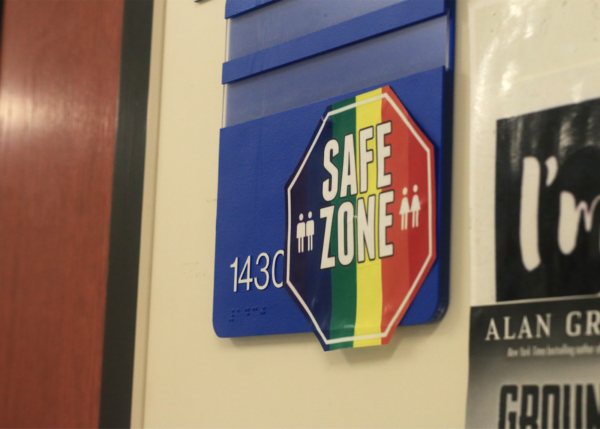“Her” leaves a mark on the concept of love

January 27, 2014
In Spike Jonze’s latest film, the audience is subject to the depressing life of Theodore Twombly, a recently divorced writer who falls in love with his new operating system that is the accumulation of everything he has ever needed in a friend. The movie dishes the audience emotion turmoil, taking in the ideas of love as well as utter humiliation and sadness.
Joaquin Phoenix gives yet another fine performance as he captures Theodore’s social anxiety as well as his desire for someone to love. The film starts with him writing a beautiful love letter. But it’s not for himself. It’s just his job. Now the audience has a feel for Theodore – a hopeless romantic who can’t escape his desire for love. After his divorce, Theodore is stuck in a state in which he mopes around and misses his wife, simply passing time playing video games or trying to fill a void in his heart with sex hotlines.
Then we are introduced to Samantha, Theodore’s new operating system (essentially a smarter Siri), who immediately piques Theodore’s interest. Scarlett Johansson does an amazing job of making Samantha a sexual presence, even though she never makes a screen appearance. Instead, the audience is drawn to feel like Theodore: a man with a lovely, wise voice talking in his ear, with no accompanying face to apply with it. But the audience still can see her as Theodore does. On an even more disturbing note, Samantha begins to act like a real human by breathing heavy to further relate to Theodore as she begins to question what having a body would feel like. Samantha sounds confused and scared at times, completely separating her mental presence from her physical computer one.
The rest of the story follows Theodore as he falls in and out of love with Samantha. The film takes on an almost depressing tinge to it due to the fact that Theodore now struggles to maintain a relationship with a “computer” that was made to fit his every whim. In the current age where we are more dependent on our computers, this is a sad glimpse of what could happen in the future. It is a love story where the love interest isn’t a misunderstood girl, but a user-created artificial intelligence system that is everything one can ask for, save for a physical presence.
The film is shot beautifully by Jonze who uses color schemes to help the audience identify with the mood. In sad scenes, we get a dark and gloomy color contrast to Theodore’s colorful outfits that make it seem as if the happiness in his life is being sucked away around him. Other, more joyful scenes use red and white, which may be why a red light shines bright whenever Samantha calls for Theodore.
The audience is subject to love at its most basic and disturbing manner as Theodore struggles to decipher the line between what kinds of feelings are socially acceptable. Our preconceived idea of love is shaken in the face of ever growing and developing technology. Such scenes hit a new low when Theodore chooses Samantha over a blind date (Olivia Wilde) who he can legitimately relate to. The film is a call to action to not be brainwashed and infatuated with technology. What happens in the film isn’t necessarily bad, but the potential realism of it hits way too close to home.












